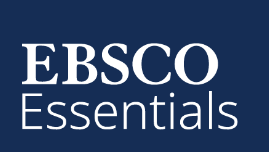Evaluation of Scholarship Support for Academic Service Projects, Mahasarakham University, During 2011 – 2023
Keywords:
Academic Services, Academic Service Projects, Analysis, Evaluation, SatisfactionAbstract
This research has two primary objectives. The first is to analyze the outcomes of scholarship allocations for academic service projects. The second is to examine opinions regarding support for the academic service mission of Mahasarakham University. The research sample consisted of lecturers, researchers, and internal personnel who applied for scholarships for academic service projects. Data collection tools included questionnaires, and the data were analyzed using statistical methods such as percentages, averages, and standard deviations. Furthermore, documents and databases related to the scholarship allocation outcomes for academic service projects funded by national and university revenues from 2011 to 2023 were analyzed. The research findings are as follows:
- The analysis of the university's budget support revealed that the majority of academic service projects were new initiatives. The Faculty of Humanities and Social Sciences was the primary agency responsible for implementing these projects, with the Faculty of Accounting and Management serving as the most collaborative partner. The primary target area for project implementation was Maha Sarakham Province, with villages and communities being the most common locations for these activities. The groups most frequently involved were community members and villagers. The predominant issues addressed were related to community and social development, particularly in the areas of education and language skills, with the economic dimension being the most commonly pursued aspect of development.
- The results of opinion analysis on support for the university's academic service mission from the interpretation of the results It was found that overall and individual satisfaction was at a high level. Both in terms of funding for academic service projects and in terms of promoting project activities. When considering each item, it was found that the most satisfying item was the rapid and thorough dissemination of funding information from both internal and external funding sources. The lowest satisfaction is the amount of funds suitable for the scope of work. Lecturers and researchers have given additional comments on the most common problem, which is unclear policies. rule Conditions, scope, and operational guidelines should be clear.
- The results of opinion analysis on the service of the Division of Research Promotion and Academic Services. It was found that overall satisfaction was at a high level. When considered on a case-by-case basis, it was found that the service of the staff Satisfaction is at the highest level. In terms of service processes and facilities. There is a high level of satisfaction. When considering each item, it was found that the most satisfying item was to provide service with courtesy and friendliness, coordination and advice every time there is an error or problem. The lowest satisfaction is that there are enough and appropriate seats for visitors. Professors and researchers have suggested relocating departments or improving the working environment both internally and externally.
References
Boranmun, P. (2004). Problems and solutions for community service at Mahamakut Buddhist University, Roi Et Campus [Master’s thesis in Social Studies]. Graduate School, Mahasarakham University.
Jantrakul, W. (2001). Index for measuring the sustainability of independent academic service units in universities [Master’s thesis in Industrial Education, Administration of Vocational and Technical Education]. Graduate School, King Mongkut's University of Technology North Bangkok.
Naseub, S. (2021). Report on the review of economic and social impacts from the global COVID-19 pandemic. International Health Policy Program (IHPP), Non-Communicable Diseases Division, Department of Disease Control.
National Science and Technology Development Agency. (2022). Action plan for driving Thailand’s development with the BCG economic model (2021–2027). Office of the National Economic and Social Development Council.
Navarattan Na Ayudhya, T. (2009). Service marketing: Concepts and strategies (3rd ed.). Chulalongkorn University Press.
Panjavisuth, S. (1998). Factors affecting the success of village water supply management: A case study of large village water supplies [Master’s thesis in Development Administration, Social Development]. Graduate School, National Institute of Development Administration.
Phonoi, W. (2006). Seminar on issues and trends in educational administration (4th ed.). Sukhothai Thammathirat Open University.
Phromphakdee, R. (2020). Analysis of the community service projects by the Academic Services Bureau, Khon Kaen University, for fiscal year 2019. Khon Kaen University.
Riumongkol, T. (1999). Introduction to the service industry. Ramkhamhaeng University Press.
Wacharasathian, W. (1996). Improving service quality for service providers: A case study of Thai Airways International Public Co., Ltd. flight attendants [Master’s thesis in Development Administration, Human Resource Development]. Graduate School, National Institute of Development Administration.
Downloads
Published
Issue
Section
License
Copyright (c) 2025 Journal of Organizational Innovation & Culture

This work is licensed under a Creative Commons Attribution-NoDerivatives 4.0 International License.





